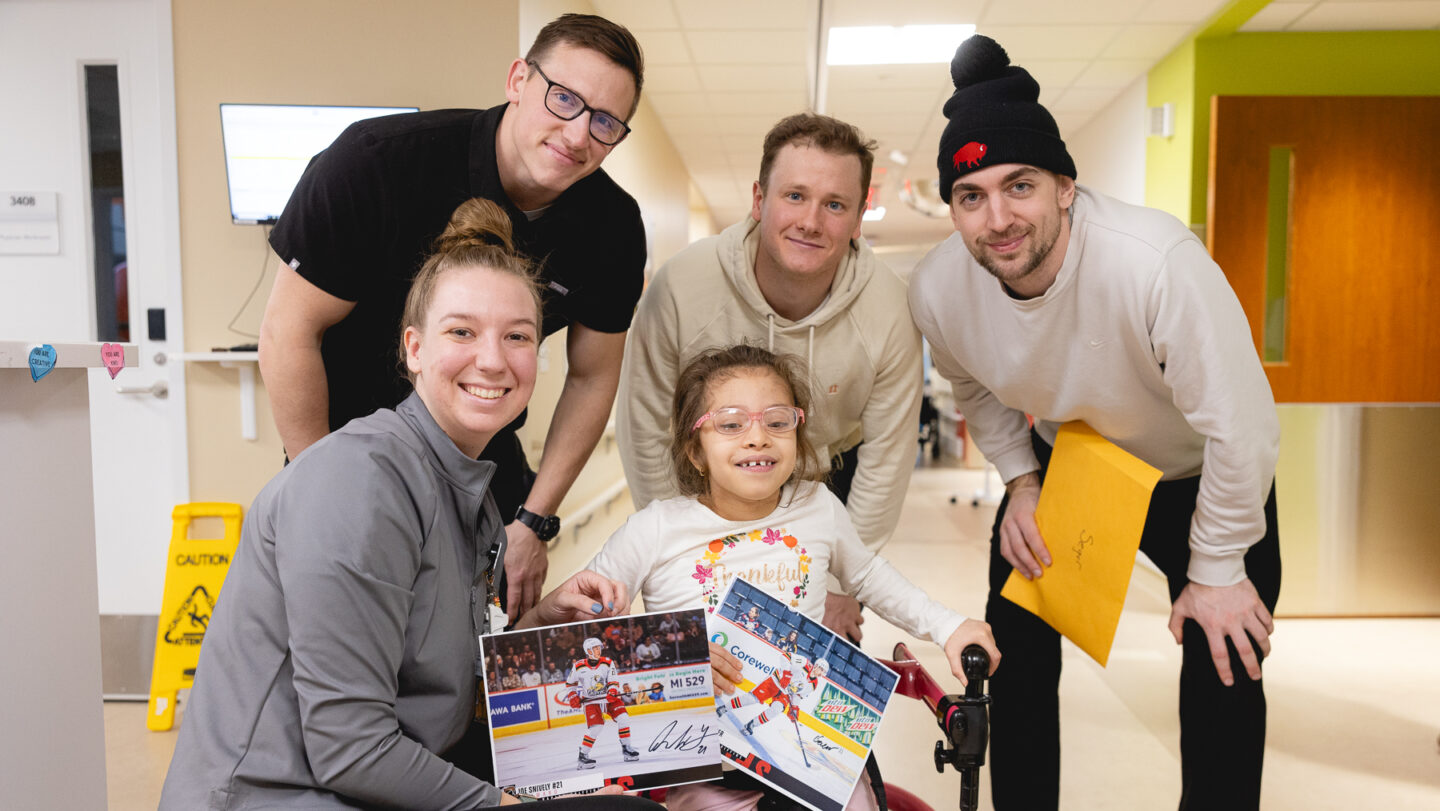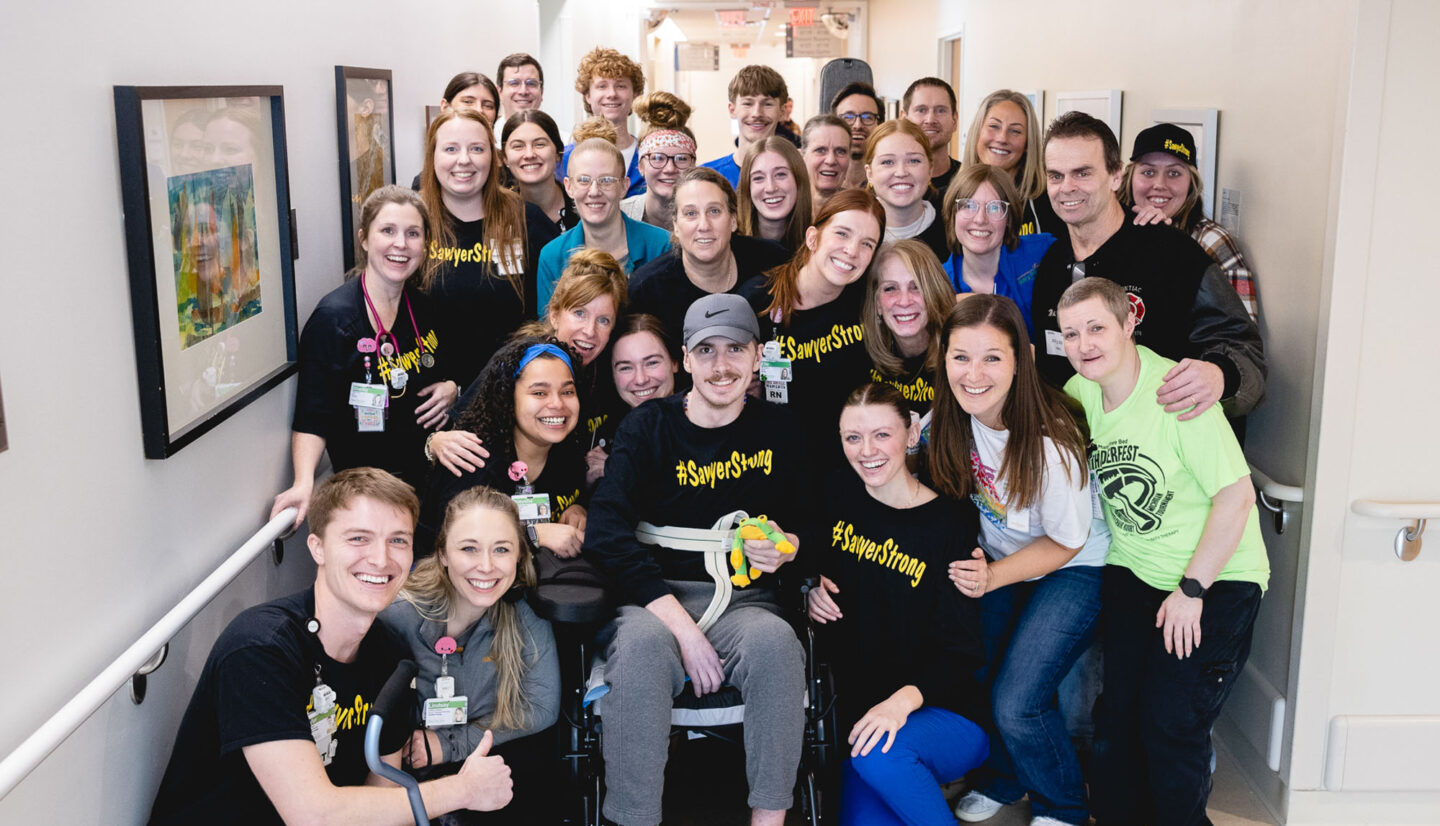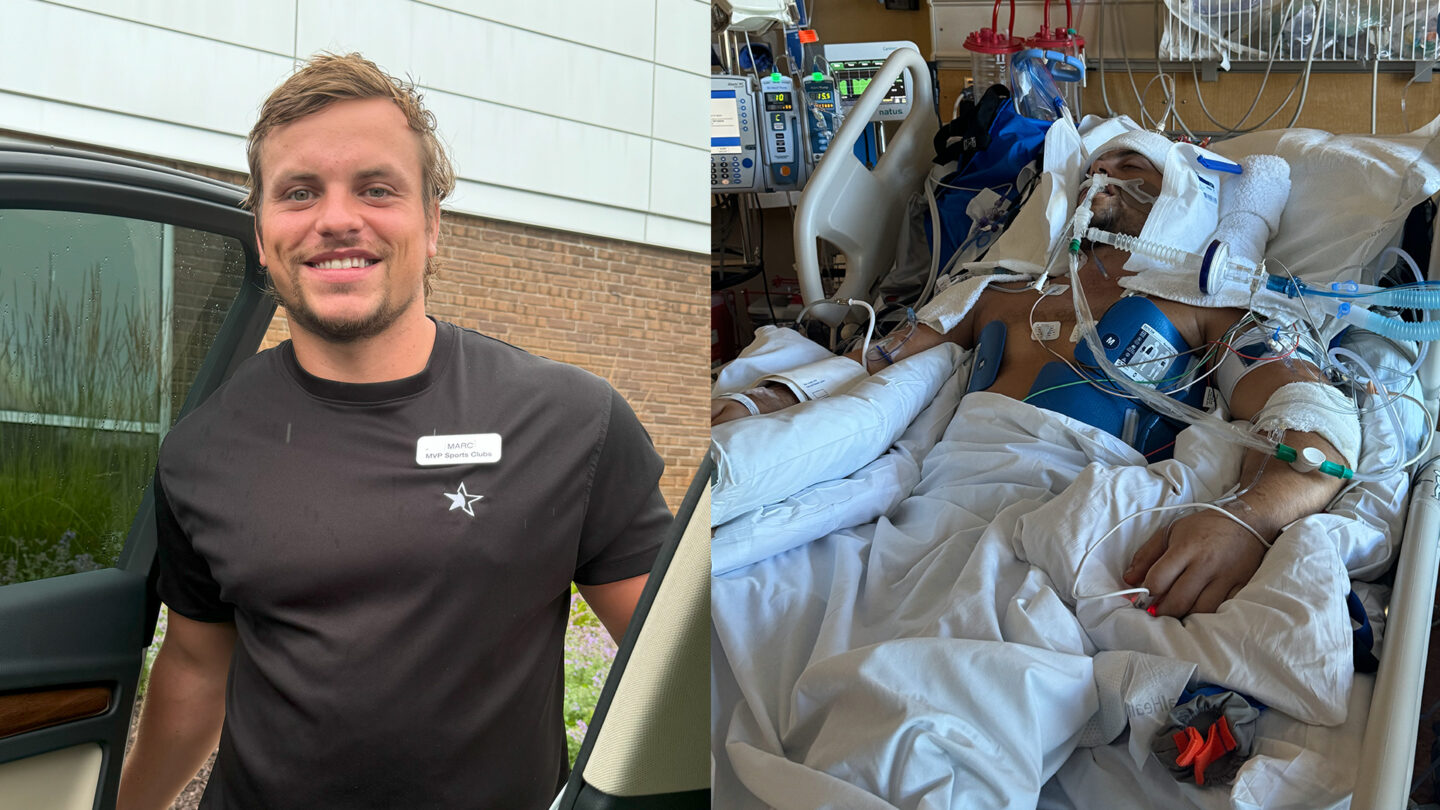Posted on March 30, 2013
Humor and Laughter Help Stroke Survivor Succeed in Rehabilitation
A sense of humor can be priceless when it comes to rehabilitation. Research shows laughter can reduce pain and ease recovery. And humor is exactly what Ann Mitchell needed to get her life back after suffering a stroke.
As an English literature teacher at East Grand High School, Ann, now retired, was known for her sense of humor and fun-loving attitude. But little did she know how much she would need to rely on those character traits.
On August 9, 2012, Ann collapsed in her kitchen. Although she was conscious, she was unable to move and couldn’t reach her phone to call for help. Fortunately, Ann wasn’t alone. Her dog, Murphy, came to her side and provided comfort by kissing her face.
Ann’s husband came home 20 minutes later and called 911 right away.
After Ann arrived at the hospital, she was shocked to learn she’d suffered a stroke because she was physically and mentally active.
“I didn’t even want my husband to call an ambulance,” Ann said, “I thought the fall was nothing.”
Once Ann was medically stable, she was transferred to Mary Free Bed Rehabilitation Hospital. She spent a week in the inpatient Stroke Rehabilitation Program receiving physical, occupational, and speech therapy.
“Although I was able to rest and was served meals in bed, I knew I wasn’t there for a vacation,” Ann laughed.
She describes her inpatient care as very rigorous and challenging, but fun. Ann enjoyed her therapists and doing brain exercises with word games and puzzles. In fact, during her first outing to the mall, she purchased her own set of Sudoku puzzles to use when she returned home.
“Everyone at Mary Free Bed is an expert at therapy,” Ann said as she remembered her inpatient care, “I loved speech therapy.”
Towards the end of her inpatient stay, Ann was able to use a walker. However, her rehabilitation journey had just begun.
Since the stroke affected her left leg the most, she continued to receive therapy through Mary Free Bed’s Outpatient Program to focus on strengthening her left leg and improving movement in her left arm and hand.
“My legs were like wooden soldiers,” Ann recalled, “I thought the therapists would run for the door when they saw me hobbling in.”
The physical and occupational therapists who worked with Ann in outpatient care rose to the occasion. Despite Ann’s uneasiness with certain tasks, the team encouraged her to persevere. Ann was especially nervous when she first had to forgo her walker and use the treadmill, supported only by a harness.
“I promise I won’t let you fall,” physical therapist, Kirk Randall, would tell Ann, “Trust me.”
Kirk would give Ann a big, warm smile and stand with his shoulders pushed back to remind her to stand up tall. She still sees that image of Kirk when she does her home exercises.
Ann also remembers one day in particular when she was stretching on her hands and knees. Suddenly, all of her limbs gave way and she fell right on her belly. She couldn’t help but laugh.
“Sometimes you don’t always succeed right away in therapy,” said Ann, “But you just have to laugh about it and try again.”
Recently, Ann’s doctor restored her driving privileges, a task she’s grateful to once again undertake so she can join her circle of friends for a few laughs at the movies and for dinner.
In the future, she would like to be able to get around without the aid of her cane and get back to taking long walks with her four-legged companion, Murphy.
Ann has only positive things to say when describing her experience at Mary Free Bed. Her only regret is that she didn’t receive therapy at Mary Free Bed when she had her hip surgery a few years ago.
“Don’t miss the opportunity for therapy at Mary Free Bed,” says Ann, “It will change your life.”





